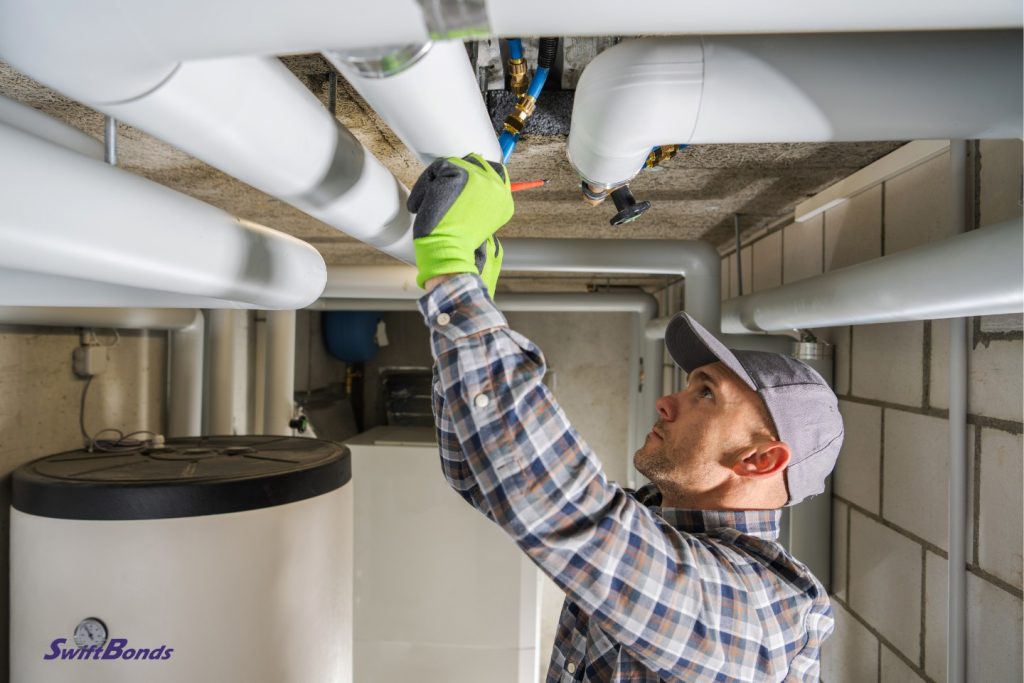Get An Instant Quote on Oregon Commercial Specialty Contractor Bonds Now
| Oregon – Commercial Specialty Contractor Level 1 ($55,000) Bond |  |
| Oregon – Commercial Specialty Contractor Level 2 ($25,000) Bond |  |
Introduction
An Oregon Commercial Specialty Contractor is a licensed professional or business authorized by the Oregon Construction Contractors Board (CCB) to perform specific types of commercial construction work within the state of Oregon. Unlike general contractors who manage and oversee entire projects, specialty contractors focus on particular trades or disciplines—such as electrical, plumbing, HVAC, roofing, or concrete work—on non-residential structures such as office buildings, warehouses, and retail facilities.

Oregon Commercial Specialty Contractor Bond
An Oregon Commercial Specialty Contractor Bond is a type of surety bond required by the Oregon Construction Contractors Board (CCB) for individuals or businesses applying for or renewing a Commercial Specialty Contractor license. This bond ensures that the contractor operates in compliance with Oregon construction laws and protects clients, subcontractors, and suppliers from financial harm caused by the contractor’s violations, negligence, or failure to fulfill contract obligations.
Purpose of the Bond
The bond provides a financial safeguard to:
- Ensure contractors comply with ORS Chapter 701.
- Compensate parties who suffer losses due to unlawful or unethical contracting practices.
- Support enforcement of state licensing standards and consumer protection laws.
Who Needs This Bond?
Any contractor in Oregon performing specialized commercial construction work—such as plumbing, electrical, HVAC, concrete, roofing, or similar trade-specific services—under a Commercial Specialty Contractor license must secure this bond as part of the licensing process.
Consequences of Noncompliance
Failing to maintain an active bond can result in:
- License suspension or revocation.
- Fines or penalties.
- Ineligibility to perform commercial specialty work in Oregon.
To obtain the bond through Swiftbonds, follow these steps:
Visit Swiftbonds' Website: Go to Swiftbonds' Oregon Commercial Contractor License Bond page.
Complete the Online Application: Fill out the application form with your business and personal details. Ensure all information is accurate to avoid processing delays.
Undergo Credit Evaluation: Swiftbonds will assess your creditworthiness to determine the bond premium.
Receive a Quote: Based on the evaluation, Swiftbonds will provide a quote for the bond premium.
Pay the Premium: If you accept the quote, proceed to pay the premium to finalize the bonding process.
Obtain the Bond: After payment, Swiftbonds will issue your bond, which you can submit to the Oregon Construction Contractors Board as part of your licensing requirements.

Frequently Asked Questions (FAQ)
Can a Commercial Specialty Contractor work on residential properties?
Only if they also obtain a residential endorsement. A commercial license alone does not permit residential work in Oregon.
How long is the license valid?
The license is valid for two years and must be renewed before its expiration. The contractor must also maintain an active bond and insurance policy during this period.
What happens if a contractor fails to maintain a bond or license?
Failure to maintain a valid bond or license may result in:
- Suspension or revocation of the license
- Civil penalties and fines
- Legal liability for unlicensed contracting
What is the difference between a Commercial General Contractor and a Commercial Specialty Contractor?
A Commercial General Contractor oversees and manages entire commercial construction projects.
A Commercial Specialty Contractor focuses on specific aspects of construction (e.g., electrical or plumbing work) and may be subcontracted by a general contractor.
What are the license levels for Commercial Specialty Contractors in Oregon?
Level 1 (CSC1) – Allows contractors to manage larger and more complex commercial specialty projects.
Level 2 (CSC2) – Generally limited to smaller-scale projects or subcontracted work.
